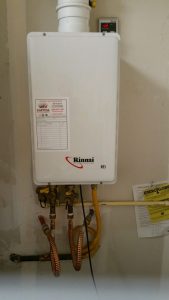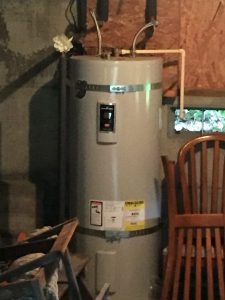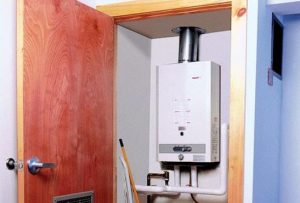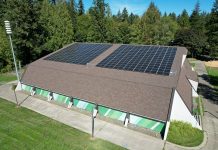Choices abound for consumers in all areas these days. From the vast array of coffee options to the myriad technological options out there to improve our lives, it can be overwhelming to know what choice is right for you. Choice is at the forefront when remodeling or upgrading your home, too. It’s tough to know what to select with so many options for appliances, home systems and gadgets. One area of innovation in the home market is the tankless hot water heater. But while many people are attracted to the energy efficient, space saving systems, they may not be the right choice for every situation.

It’s estimated that 20 percent of an average family’s energy bill comes from hot water heating and usage. With that in mind, finding the balance of performance and energy efficiency is critical. While you want to save energy and money, you don’t want a cold shower.
Dwayne Boggs, owner of Boggs Inspection Service, has been in the inspecting business for more than a decade and has seen just about every type of system – good and bad – that a home or business has to offer. Tankless systems are showing up more and more and, in fact, Dwayne has one in his own home. However, a tankless isn’t right for everyone and Dwayne cautions people to consider all aspects when making the decision to switch. While energy efficiency tops most people’s list of reasons to switch, cost, water usage and home size are critical components as well.
Before deciding if a tankless hot water heater is right for you, take a moment consider all the pros and cons. Dwayne shares four things to consider when deciding on a tankless hot water heater.
- Electric, Natural Gas or Propane?
Any style of hot water heater requires a power source to heat the water. Natural gas, propane or electricity can all serve as that source. In a traditional tank system, water is heated to a set temperature, usually around 120 degrees Fahrenheit and held there, ready for use. Tankless hot water heaters pull cold water across heating element coils to heat the water as it’s needed and requested by the user.

Both tankless and traditional heaters are available in electric, gas and propane models. However, most experts agree that a gas or propane model is a better option when feasible. Why? “Most electric tankless hot water heaters will require an upgrade to your electric panel,” shares Dwayne, “which can get pretty expensive, pretty fast.”
However, propane- or gas-powered systems have their added costs as well. You may need to move the location of your system, venting may need to be added and piping upgrades are often needed, adding often unforeseen costs to the project. Tankless systems are not simply a “connect and go” option, Dwayne reinforces. Consult a professional when considering changing your system to fully understand the costs and requirements.
- Capacity
The most critical question when choosing a tankless over a tank hot water heater is, “What are my usage needs?” If you have a houseful of teenagers taking multiple showers and requiring many loads of laundry, a single tankless hot water heater might not work for you. However, if you are a couple living on their own, it might be the perfect fit. When selecting a hot water tank, you must consider your capacity needs first and foremost.
When selecting your tank, look for usage ratings. Traditional holding tank systems come with a “first hour rating” or FHR showing the gallons of hot water your system can deliver in its first hour of use. Tankless systems use a “gallons-per-minute” rating or GPM, sharing the same information.
If you have a larger home or concentrated during one time period (say mornings before work and school), you may require two tankless units feeding two areas of the home (kitchen/laundry and bedrooms) or a larger capacity (over 55 gallons) tank. “Ensuring your hot water heater is correctly sized for your structure and usage needs is the most important thing when making a decision on hot water heater type,” says Dwayne.
Dwayne also recommends a circulation pump to help deliver hot water quickly to the faucet, reducing water waste.
- Cost and Longevity

Most people know that tankless hot water heaters are more expensive than traditional. However, they last 20 years on average versus 10 – 15 for traditional styles. Energy savings over time can cover those costs quickly. However, costs can double if your home needs two tankless units. Be sure to compare all aspects of cost before making your final choice.
- Energy Efficiency
Often, the tankless choice is viewed as a green choice. Energy.gov supports this, stating that for households using “41 gallons or less of hot water daily, tankless water heaters can be 24% to 34% more energy efficient than conventional storage tank water heaters. They can be 8% to 14% more energy efficient for homes that use a lot of hot water – around 86 gallons per day.”
These numbers, however, are for electric systems. Gas and propane heaters require a pilot light to burn continuously reducing those numbers significantly. Do your homework before basing your decision on energy savings alone.
To learn more about Boggs Inspection Service’s home inspections, visit them online or call 360-480-9602.
Sponsored











































